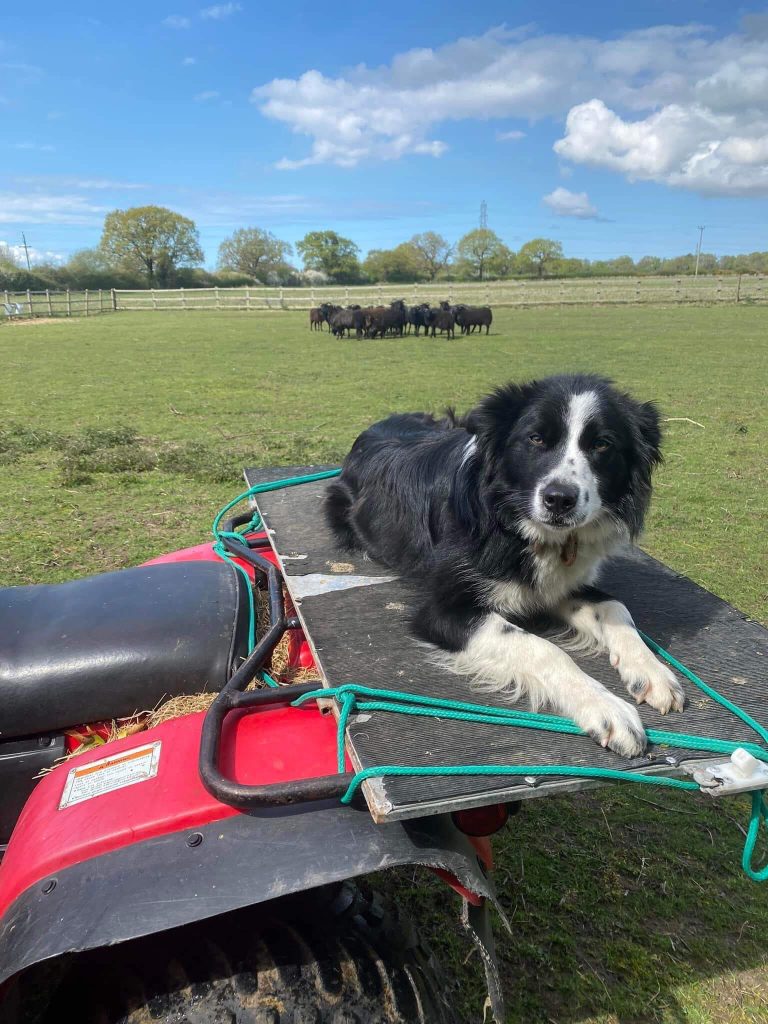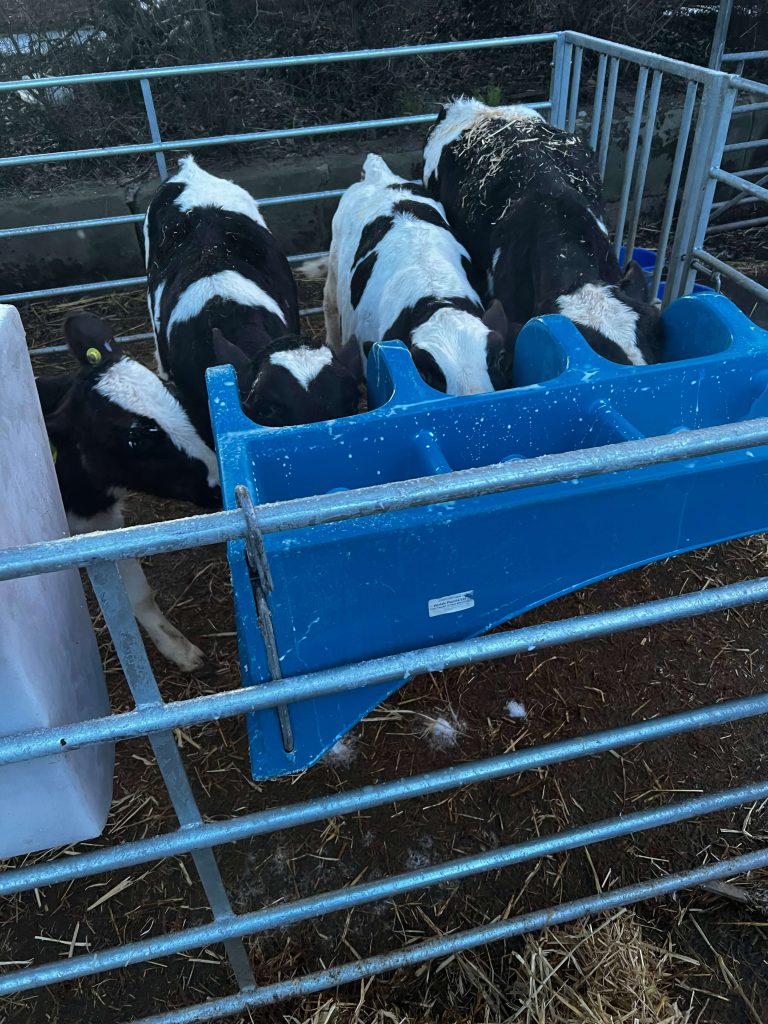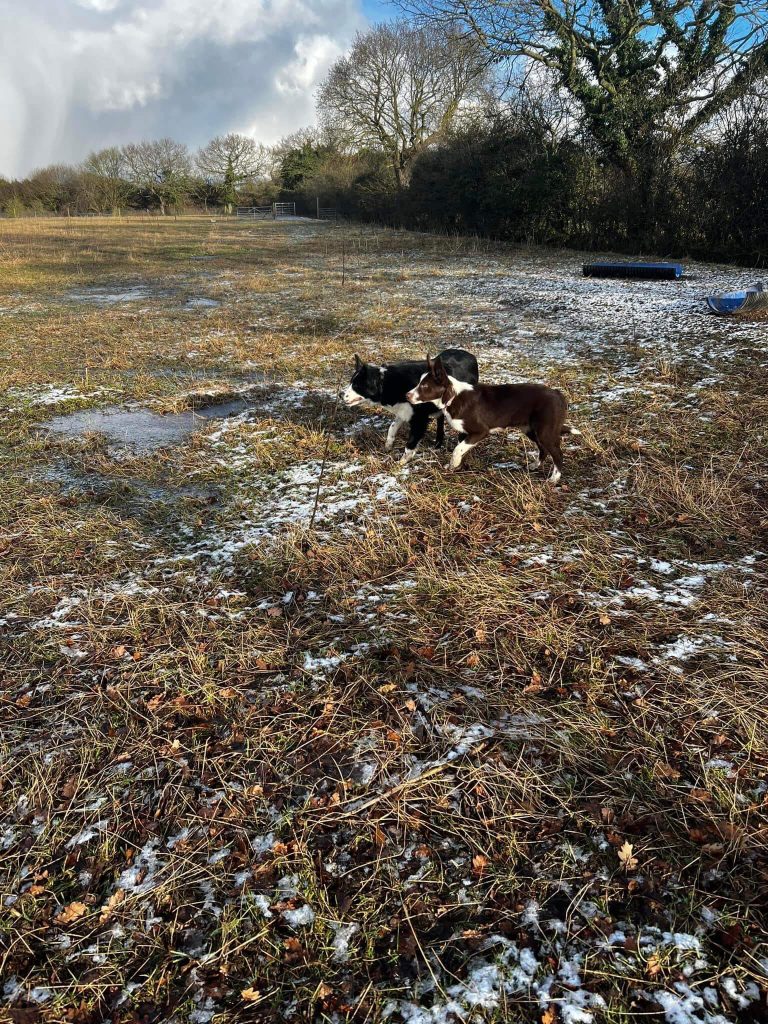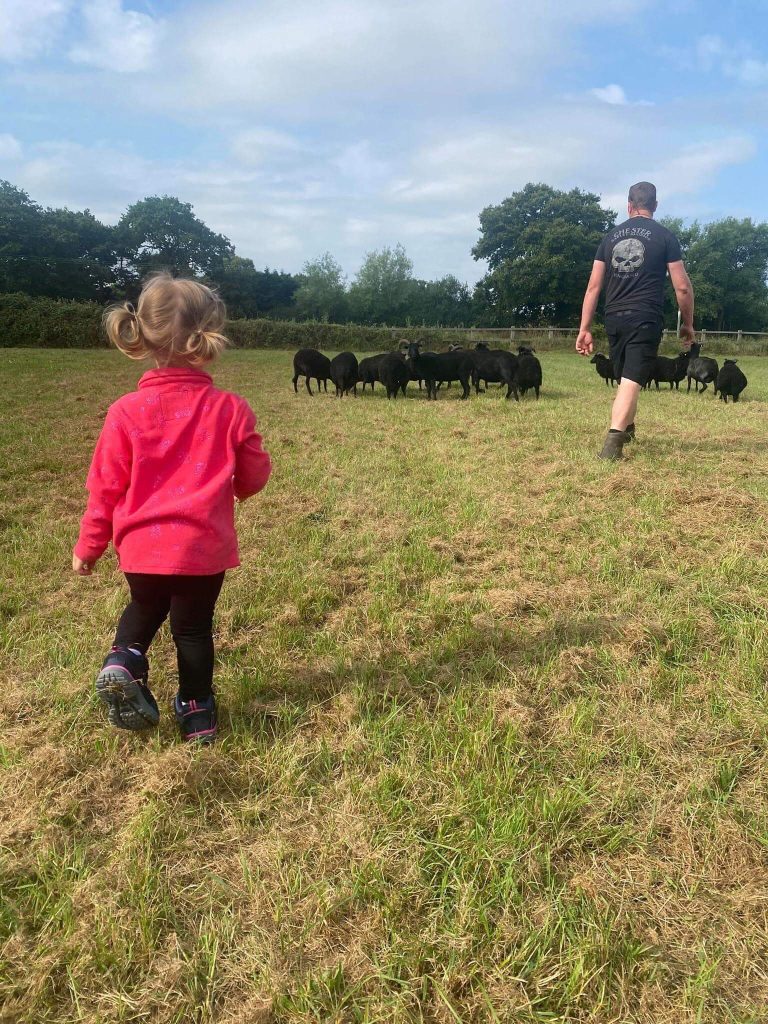As part of our campaign to Back British Farming we sit down with farmers on our rural community blog, and chat about all things farming. In this blog we spoke with Jesy (@tattooedshepherdess), who is an English farmer based in Ellesmere Port and works on a mixed farm. Jesy helped us understand her journey to becoming a farmer, the livestock she keeps, advice for those thinking of getting into farming and how she learnt to farm…
What’s your farming background?
My Husband and I are both first generation farmers, realising we shared the mutual crazy dream and passion of becoming farmers.
Why did you decide to become a farmer?
I have always owned a collie. My first collie was called Shep, he passed away in 2012 when I was sixteen due to cancer and my world was turned upside down. I didn’t know a life without a collie, all of the summers spent on my aunties farm in Caerwys walking him for miles and miles, what would I do now?
Looking for another collie to fill the void I quickly realised this breed is a puppy package of untapped potential. I wanted to train a collie to do exactly what it is bred for.
What led you to decide to farm the animals you have?
Jo was so supportive of my dream he immediately set out looking for some Hebs as training sheep, the animals have spiralled from there. Extending to another breed, the welsh mountain.
What are the key qualities needed to do your job?
Shepherding … a sense of humour, especially when doing it with your significant other. Sheep get out, the dogs go the wrong way, nothing ever runs smoothly with sheep, and if it is (by some miracle) going to plan, you can be sure it won’t last that way for long.
Working in Dairy you need patience and compassion for the cows, the farm I work on is incredible with the cows, the foot trimmer is on the farm weekly, the vet is out weekly if not every other week.
It’s also good to have an eye for when your animals are in distress or looking a bit off colour. The majority of the time, if a sheep / lamb or calf / cow is looking sickly, acting quickly and efficiently can aid in preventing the unspeakable happening.
How did you train for and become competent at this role?
Due to being a fashion graduate I was 26 when I started my farming journey, I was past my best with regards to being able to go back into education, having a mortgage and bills to pay. Now almost 32 I have acquired most of my knowledge through friends such as Glynne Jones (Pentir Sheepdogs) and James Gilman (James Gilman Sheepdog Training).
Do you use a sheepdog? What’s his or her name and how long have you had them?
We have a few ! My main girl Tiff was bought from and trained by Hannah Townsend (Wholstone Sheepdogs). This dog knows my heart, she would follow me to the ends of the earth and I would do the same for her, then we have Penllwyn Nova, Penllwyn Skye, Byron Roux, Byron Bolt and Byron Pip.
Did you need to do additional training with the dog?
Initially yes, I took Nova to James Gilman. James is great, I was never made to feel inferior due to having no farming background and being a complete townie who had no idea what she was doing initially.
His method of teaching is so calm, and it helped me to build my confidence massively. I’m so grateful.
Do you have children and run a home too? If so, how do you juggle these responsibilities?
We have Lola (3) and Hunter (2). Juggling the responsibilities is easy when you have two children who absolutely adore farming.
Hunter’s first words most mornings are “let’s go and sort the sheep Mummy”.
Lola is my mini-me, chief mini shepherdess and boss of the blue spray, that’s her job, and if you’re ever with us helping one day, don’t forget !
If all else fails get the quad out. They will happily sit on the quad for hours without even so much as a peep.
Briefly describe a typical working day (e.g. what time do you get up, have breakfast, round the sheep up etc).
- 2.45am wake up, get sorted for the day.
- 3.15am leave for work.
- 3.45am commence milking.
- 7am feed the calves.
- 8am bed down, top up water and feed.
- 9am head home to pick up the dogs and Hunter (my mum does Lola’s morning school run for us).
- 11am – 2.30pm sort the sheep, and train the dogs.
- 3pm collect Lola from school.
- 5pm tea time.
- 7pm bed time for the kids.
- 7.30pm watch an episode of Yellowstone then bed.
Do you get any time off? If you do, what do you like to do?
Our weekends are often filled with sheepy bits but we do like to take the children for some lunch or for a walk round Delamere forest with some of the dogs.
We also enjoy spending time with our friends Gerallt and Cara Jones and their children. Gerallt is the head stockman at the dairy, our children all get on really well.
What’s great about being a farmer?
Knowing that you’re contributing to the nutrition of the country. Watching an animal come into this world and nurturing it to the best of your ability, watching it thrive and grow. It’s unapologetically beautiful.
What do you think are the challenges for farmers?
For myself personally it would have to be loosing stock. I care so passionately about all of the animals, that on the rare occasions we do loose one I tend to take it personally, questioning what more could I have done.
Have you always felt supported when learning and on the job?
I am so fortunate that my manager is the way he is, I am constantly asking questions wondering what’s what if there’s something I have seen that is new to me. “Why do you do that that way”, “what is the purpose of that”. He has yet to tell my chatterbox to shush.
What would you say to other people thinking of becoming a farmer?
If I could go back in time and tell 16 year old me that women really can be farmers then I would. Becoming a farmer isn’t a want it’s a calling, you’ve got to be physically and mentally tough but also compassionate and caring, it’s about being the right balance as a person.
The likelihood is, if you see a farmer in a field sorting their stock, and you yearn to have that lifestyle, then that’s what you’re meant to be doing, don’t miss your calling.
If we can do it anyone can !
What job opportunities are available for somebody, man or woman, wanting to enter the trade?
If you’re looking to get into farming then you don’t need to look far. The Dairy industry is constantly recruiting.
If you’re looking to get into sheep this may be more difficult purely due to the individuals location, so you may just have to do as we did, find some land and go it alone!
If you’re a farmer and you’d like to contribute in our campaign to raise awareness for the incredible work in British agriculture, please drop us a DM on Instagram – @_howdenrural








